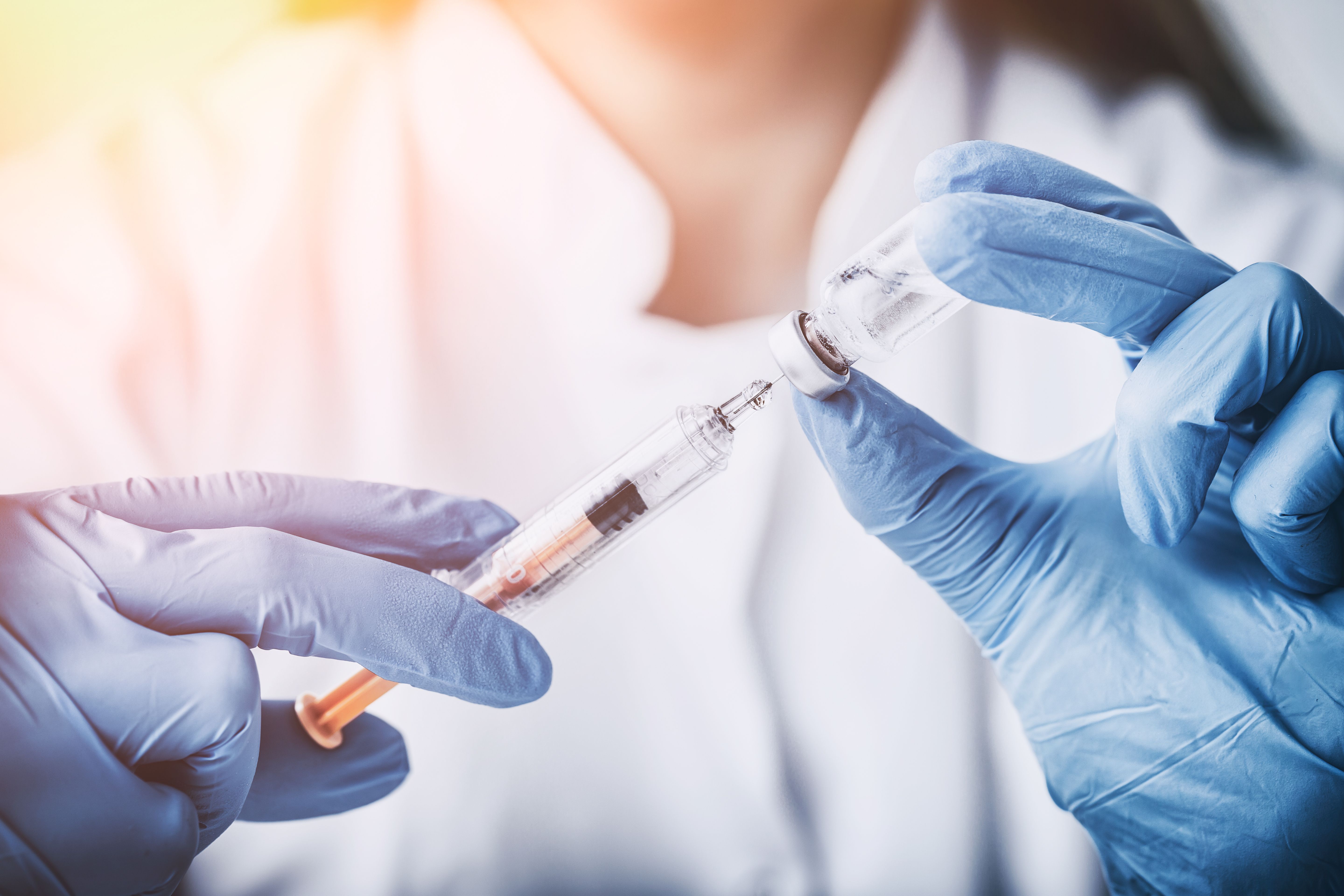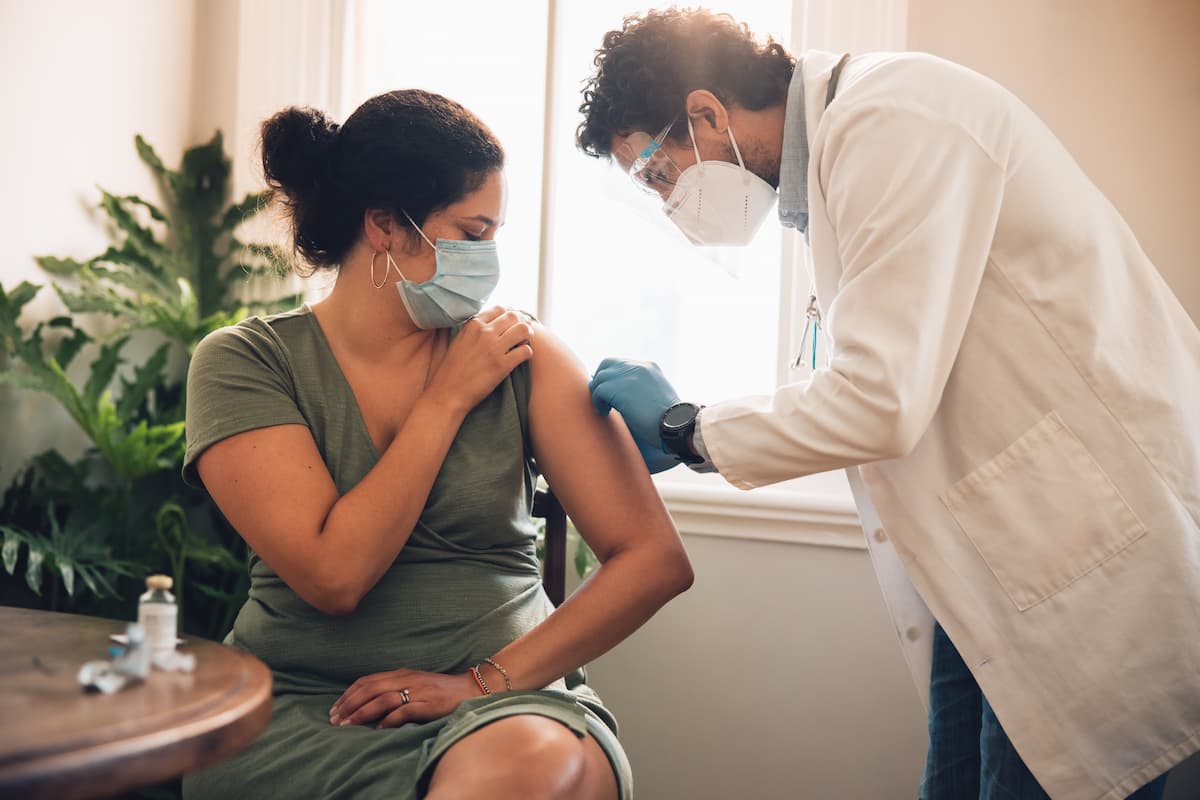Article
Study: Maternal Immunization with Pneumococcal Surface Protein A Protects Newborns
Author(s):
Findings suggest that mice derived from and breastfed by immunized mothers were capable of producing anti- pneumococcal surface protein A (PspA) specific antibodies, despite having no direct exposure to PspA.
New research has found that maternal immunization with pneumococcal surface protein A (PspA) protects the offspring with immune memories against pneumococcal infection.
Credit: REDPIXEL - stock.adobe.com

Streptococcus pneumoniae (S. pneumoniae) is one of the most widespread pathogens in the world and is a significant cause of infant mortality. Although current vaccines can be beneficial, antibiotic resistance and the inability to vaccinate infants less than 1 year of age necessitates new protective strategies. Therefore, maternal immunization is a new option being investigated to protect infants by passive immunity from am immunized mother.
In the new study, investigators aimed to acquire immunity against S. pneumoniae in infants by maternal immunization with PspA. Four-week-old female mice were immunized with recombinant PspA intranasally twice weekly for 3 weeks before being mated with age-matched males and delivering offspring.
The offspring were divided into 4 groups: those with both an immunized birth mother and foster mother; those with an immunized birth mother and non-immunized foster mother; those with a non-immunized mother and immunized foster mother; and those in which neither mother was vaccinated.
PspA is one of the common antigens of S. pneumoniae. More than 95% of pneumococcal strains are classified as Family 1 (PspA1) and Family 2 (PspA2), with antibodies showing high cross-reactivity to each other. Based on this, PspA has been recognized as one of the more promising target antigens for a next-generation universal pneumococcal vaccine.
According to the study, the week-old offspring derived from and fostered by immunized mothers had more anti-PspA-specific antibody producing cells in the spleen than the mice derived from sham-immunized mothers. The offspring were raised up to 4 weeks and were subcutaneously stimulated with recombinant PspA.
After this, the levels of anti-PspA immunoglobulin G in sera after stimulation were significantly higher in the offspring derived from the immunized mothers. Additionally, the induced specific antibody to PspA showed protective efficacy against systemic pneumococcal infection.
Notably, 7-day-old offspring in the group with both an immunized birth mother and foster mother had a significantly greater number of anti-PspA specific immunoglobulin G-producing cells in the spleen than offspring from the group in which neither mother was immunized. This suggests that the mice derived from and breastfed by immunized mothers were capable of producing anti-PspA specific antibodies, despite having no direct exposure to PspA, according to the study authors.
The investigators examined the specific immunological memory on days 3, 7, 14, and 21 after stimulation. Earlier research had confirmed that maternal antibodies significantly decreased within 2 weeks if the offspring were not breastfed by the immunized mother or started decreasing at 3 weeks of age even if they were breastfed by an immunized mother.
In this study, anti-PspA-specific immunoglobulin M was positive among all groups on day 3 after PspA stimulation and was highest on day 7 among offspring derived from an immunized mother and/or nursed by an immunized mother. Particularly in the group with 2 immunized mothers, the immunoglobulin M antibody titer was significantly higher than in the group with no immunized mothers on days 7, 14, and 21.
Immunological memory has been challenging to observe experimentally, but recent advancements have made it possible to better understand the mechanism, which is based in the antibodies, effector T cells, and the priming of B and T cells. The new study provides insights for a novel strategy investigating maternal immunization with a universal pneumococcal vaccine, according to the authors.
REFERENCE
Kono M, Iyo T, Murakami D, Sakatani H, Nanushaj D, and Hotomi M. Maternal immunization with pneumococcal surface protein A provides the immune memories of offspring against pneumococcal infection. Front Cell Infect Microbiol 2023:13. doi:10.3389/fclmb.2023.1059603.
Newsletter
Stay informed on drug updates, treatment guidelines, and pharmacy practice trends—subscribe to Pharmacy Times for weekly clinical insights.

FDA Grants Full Approval to mRNA-1273 COVID-19 Vaccine in Children At Increased Risk





